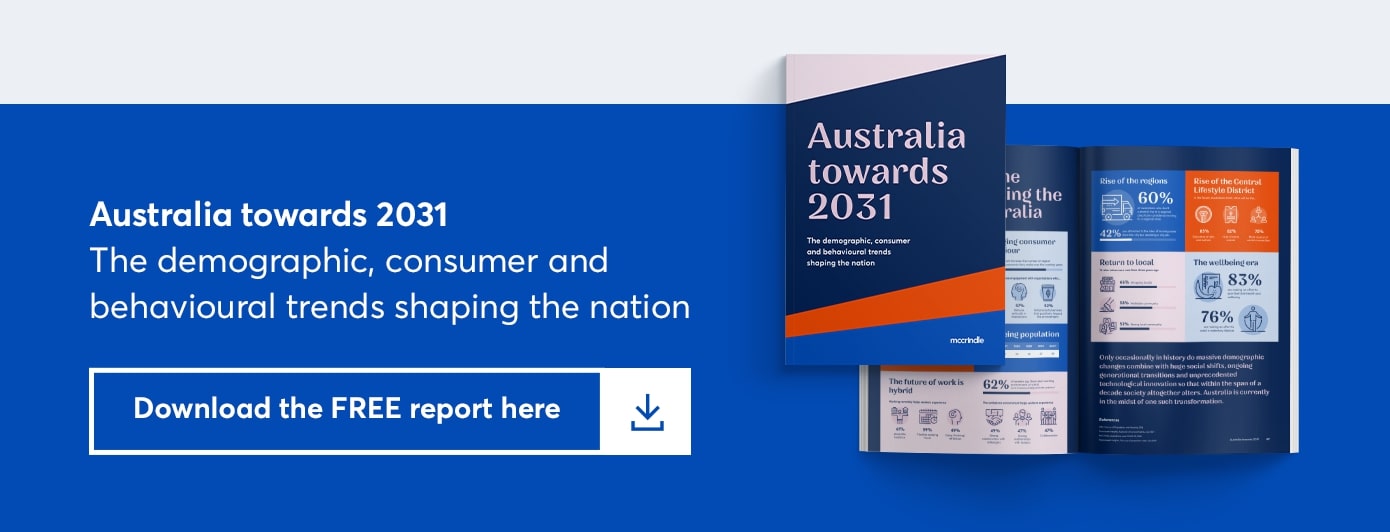By: McCrindle
Being a futurist is an interesting profession. For some it conjures an image of a crystal ball. For others, excel spreadsheets. It may come as a surprise that, in fact, no one can predict the future with certainty. But we can prepare for it. By observing the changes and thinking about what will influence the future, leaders and organisations can be better prepared for what is to come.
Spotting trends in changing times
As futurists, we approach studying the future from the base of reality, evidence and insights. By observing the trends, looking at data sets, trajectories and projecting forward, we can extrapolate and get a sense as to where things are going. The context in which leaders do this is changing. While many talk about a VUCA environment (volatility, uncertainty, complexity and ambiguity), we believe MAE is a better acronym to describe it, which stands for multifactorial, accelerating and Expanding.
Multifactorial – There are an increasing number of factors impacting the future. When looking at the megatrends and the interaction of those trends, there is greater complexity. It’s not just one trend, like a new consumer group or an economic uncertainty. It’s a combination of global trends impacted by technology and different generations all coming together.
Accelerating – Not only is there an increasing number of factors, but there is an increasing speed of these factors acting upon us. The speed and scale of change is accelerating. Not just in technology but in social trends, global interactions and economic uncertainty.
Expanding – While there are more factors than ever, coming at a faster pace than ever, the scope in which this is happening is also expanding. The context is broader than ever. It is not just local, but global. Not just one industry to be aware of, but multiple.
Top 5 trendspotting blockers
When looking to the future and spotting trends, it is helpful to be aware of the blockers that can prevent us from seeing the bigger picture. These include:
1. Line of sight limitations: The future is complex, multifactorial and influenced by what is beyond the next corner. Switch out the Driver POV for the Drone POV.
2. Gamblers Fallacy: Just because it just occurred doesn’t mean it won’t reappear. Scenario planning and rational analysis help us avoid subjective calls.
3. Obsession with radical change: It’s the incremental and inevitable changes that transform the times not just the big shocks. Don’t just look for waves, read the tides. Think like a boatie more than a surfer.
4. Single direction deception: Trends, like social changes, are often roundabouts, not just one-way streets. Counter trends, retro everything and the return to timeless behaviours remind us that the future is more of a swing than a slippery slide.
5. Irrational exuberance: This created the dot-com bubble and continues to blindside future forecasters. Positive emotions are helpful in buoying consumer sentiment and energising entrepreneurs but preparing for what’s next needs clear-eyed analysis. The future will bring black swans not just soaring eagles
Article supplied with thanks to McCrindle.
About the Author: McCrindle are a team of researchers and communications specialists who discover insights, and tell the story of Australians – what we do, and who we are.
Feature image: Photo by Matthew Hamilton on Unsplash


